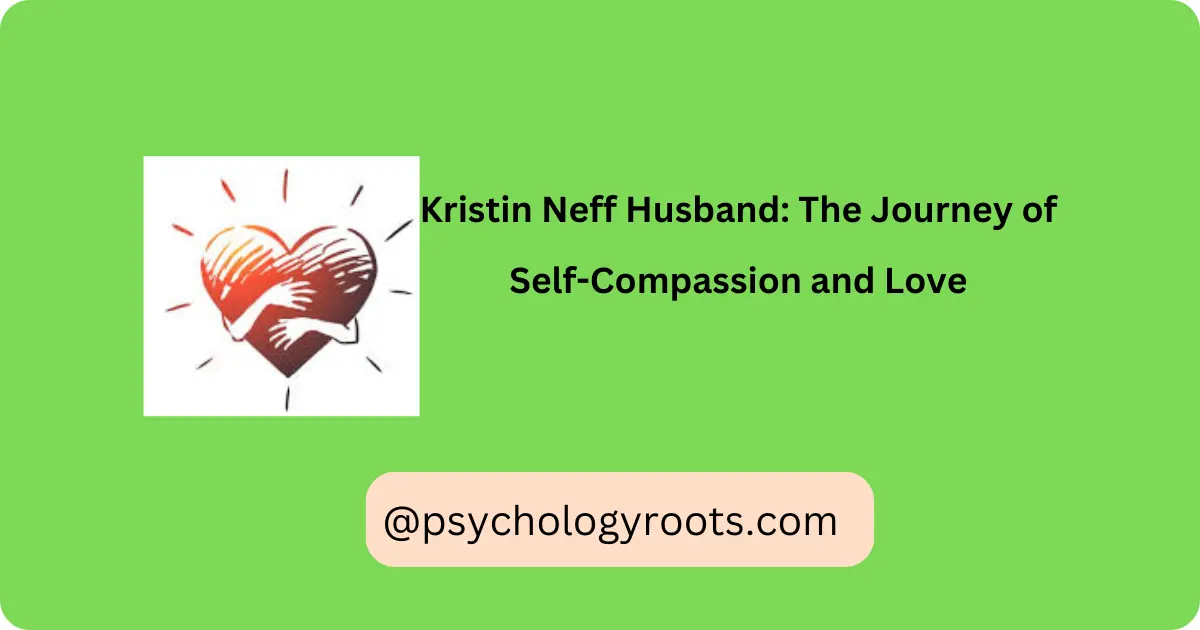Table of Contents
Kristin Neff Husband: The Journey of Self-Compassion and Love
Dr. Kristin Neff, a pioneer in the field of self-compassion, has inspired millions with her groundbreaking research and practical strategies. As the author of Self-Compassion: The Proven Power of Being Kind to Yourself, Neff challenges us to prioritize self-love without guilt or fear. But behind her professional accolades lies a personal story of vulnerability, relationships, and the journey toward loving oneself.
In this blog, we will explore the key lessons from Kristin Neff’s teachings, her relationship insights, and the powerful connection between overcoming fears and declaring self-love.
The Legacy of Kristin Neff in Self-Compassion
Kristin Neff introduced the concept of self-compassion as a healthier alternative to self-esteem. While self-esteem is often contingent on external validation, self-compassion promotes internal resilience, allowing individuals to embrace their imperfections without judgment.

Her research identifies three core components of self-compassion:
- Self-Kindness: Treating oneself with care and understanding.
- Common Humanity: Recognizing that suffering is a shared human experience.
- Mindfulness: Observing one’s emotions without over-identifying with them.
These principles form the foundation for nurturing meaningful relationships, including the relationship we have with ourselves.
The Role of Relationships in Self-Compassion
Kristin Neff and Her Husband
Though Kristin Neff’s personal life remains private, her teachings on relationships reflect deep insights into emotional intimacy, vulnerability, and acceptance. A loving partnership is often a mirror of our inner emotional state. According to Neff, the ability to love another starts with loving oneself fully and unapologetically.
Overcoming the Fear of “I Love Me”
Saying “I love me” can feel unnatural for many due to societal conditioning that equates self-love with selfishness. Neff argues that true self-love is not about narcissism but about embracing one’s worth. This shift is crucial for cultivating healthier dynamics in romantic relationships.
Declare Your Love: Overcoming Emotional Barriers
Why “I Love Me” Matters
The fear of self-love often stems from:
- Cultural Expectations: Many cultures emphasize humility and discourage self-pride.
- Past Experiences: Childhood criticism or neglect can erode self-worth.
- Perfectionism: The belief that one must earn love through achievement.
However, declaring “I love me” empowers individuals to break free from these barriers, fostering greater self-awareness and emotional strength.
How Kristin Neff’s Teachings Apply
- Practice Self-Kindness: Replace self-criticism with encouraging affirmations.
- Recognize Shared Struggles: Remember that everyone experiences fear and failure.
- Stay Mindful: Acknowledge negative emotions without being consumed by them.
The Fear of Self-Love in Relationships
How Fear Impacts Romantic Connections
Fear of self-love can manifest as:
- Codependency: Relying on a partner for validation and worth.
- Conflict Avoidance: Suppressing personal needs to maintain harmony.
- Insecurity: Doubting one’s ability to be loved or valued.
These patterns hinder emotional intimacy and erode trust in relationships.
Building Healthier Relationships
Embrace Vulnerability: Share fears and desires openly with your partner.
Set Boundaries: Respect personal needs without guilt or hesitation.
Support Each Other’s Growth: Celebrate achievements and provide constructive feedback.
Practical Steps to Cultivate Self-Love
- Affirm Your Worth Daily: Write or say affirmations like, “I am worthy of love and happiness.”
- Engage in Self-Compassion Exercises: Use guided meditations or journaling to explore your emotions.
- Practice Gratitude: Focus on what you appreciate about yourself and your life.
- Seek Professional Guidance: Therapists or counselors trained in self-compassion can provide valuable tools for growth.
Kristin Neff’s Contributions to Declaring Self-Love
Dr. Neff’s work bridges the gap between academic theory and practical application. Her teachings inspire individuals to confront the fear of self-love and cultivate healthier relationships. By declaring “I love me,” you create the emotional foundation for personal and relational growth.
Frequently Asked Questions (FAQs)
What is self-compassion?
Self-compassion is treating yourself with kindness, recognizing shared struggles, and practicing mindfulness.
How can I overcome the fear of self-love?
Start with self-kindness, challenge societal conditioning, and practice daily affirmations.
What role does self-love play in relationships?
Self-love fosters emotional security, allowing for healthier and more fulfilling connections.
How can Kristin Neff’s teachings help in relationships?
Neff’s principles of self-compassion encourage vulnerability, empathy, and emotional resilience in relationships.
Can self-love be learned later in life?
Absolutely! Self-love is a skill that can be developed through consistent practice and self-awareness.
References
- Neff, K. (2011). Self-Compassion: The Proven Power of Being Kind to Yourself. HarperCollins.
- Neff, K., & Germer, C. K. (2018). The Mindful Self-Compassion Workbook: A Proven Way to Accept Yourself, Build Inner Strength, and Thrive. Guilford Press.
- Brown, B. (2012). Daring Greatly: How the Courage to Be Vulnerable Transforms the Way We Live, Love, Parent, and Lead. Penguin Random House.
Help Us Improve This Article
Have you discovered an inaccuracy? We put out great effort to give accurate and scientifically trustworthy information to our readers. Please notify us if you discover any typographical or grammatical errors.
Make a comment. We acknowledge and appreciate your efforts.
Share With Us
If you have any scale or any material related to psychology kindly share it with us at psychologyroots@gmail.com. We help others on behalf of you.